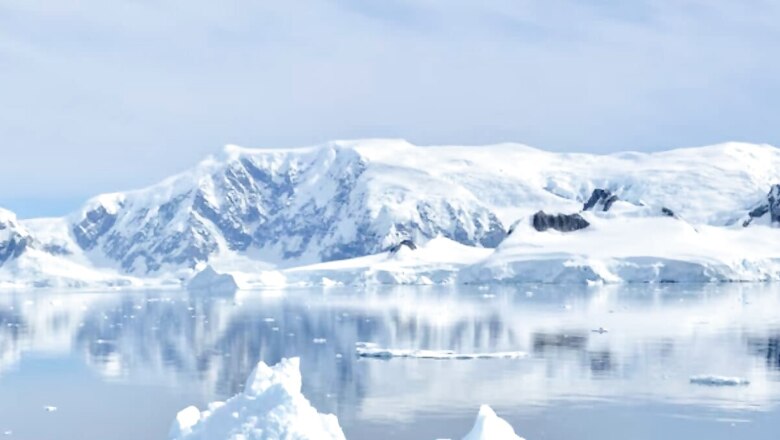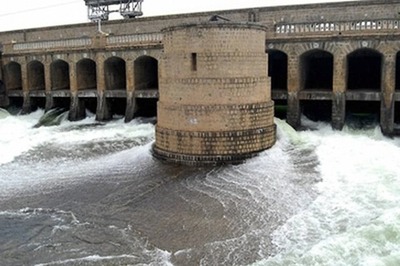
views
New research indicates that the Earth’s rotation is slowing down due to the melting of the polar ice caps, resulting in an “unprecedented” increase in the duration of days. The melting of Earth’s ice caps in Greenland and Antarctica is widening the waters close to the equator, changing the pace at which the Earth spins, according to a recent study published in Proceedings of the National Academy of Sciences (PNAS).
According to the paper, the drag effect on Earth’s rotational speed increases with the amount of water that flows from the polar regions into the world’s seas, especially into equatorial regions. Co-author Benedikt Soja of ETH Zurich compared this phenomena to “when a figure skater does a pirouette, first holding her arms close to her body and then stretching them out.” Due to physical inertia, the initially quick rotation slows down as mass travels away from the axis of revolution.
In physics, we talk about the rule of conservation of angular momentum, which also regulates the rotation of the earth. The days lengthen as the Earth rotates more slowly. Thus, while not significantly, climate change is also affecting how long days are on Earth.
Despite being called a sphere, Earth is really more appropriately defined as an “oblate spheroid,” with a tiny equator bulge that resembles a satsuma. Tectonic plate movement, the daily tides that alter the seas and crust, abrupt and dramatic changes brought on by earthquakes and volcanic activity — all contribute to this shape’s ongoing flux.
Every 24-hour revolution has 86,400 seconds, a number that is determined by the moon. According to the BBC, the Earth’s rotation is being slowed by its gravitational pull, a phenomenon known as tidal braking, which is lengthening our days by 2.3 milliseconds every century. In order to move somewhat farther away from Earth, the moon uses the energy generated by Earth’s rotation. The moon will be further away from Earth in 200 million years, causing Earth to rotate more slowly and perhaps extending a day to 25 hours.
While that is a naturally occurring phenomenon, the researchers believe that climate change may have a greater impact than the moon. “We humans have a greater impact on our planet than we realize, and this naturally places great responsibility on us for the future of our planet,” Soja said.
Days have already gotten longer by around 0.8 milliseconds since 1900 as a result of climate change. In comparison to baseline times, days may be extended by 2.2 milliseconds by climate alone by 2100 in the most dire scenario of high emissions. Co-author Surendra Adhikari of NASA’s Jet Propulsion Laboratory told AFP that “it holds significant implications for space and Earth navigation,” despite the fact that this rise might not be noticeable to humans.
Communicating with a spacecraft as far away as Voyager requires precise knowledge of Earth’s position in space. Even a small error of a centimetre can result in the signal being kilometres off target by the time it reaches the spaceship.




















Comments
0 comment